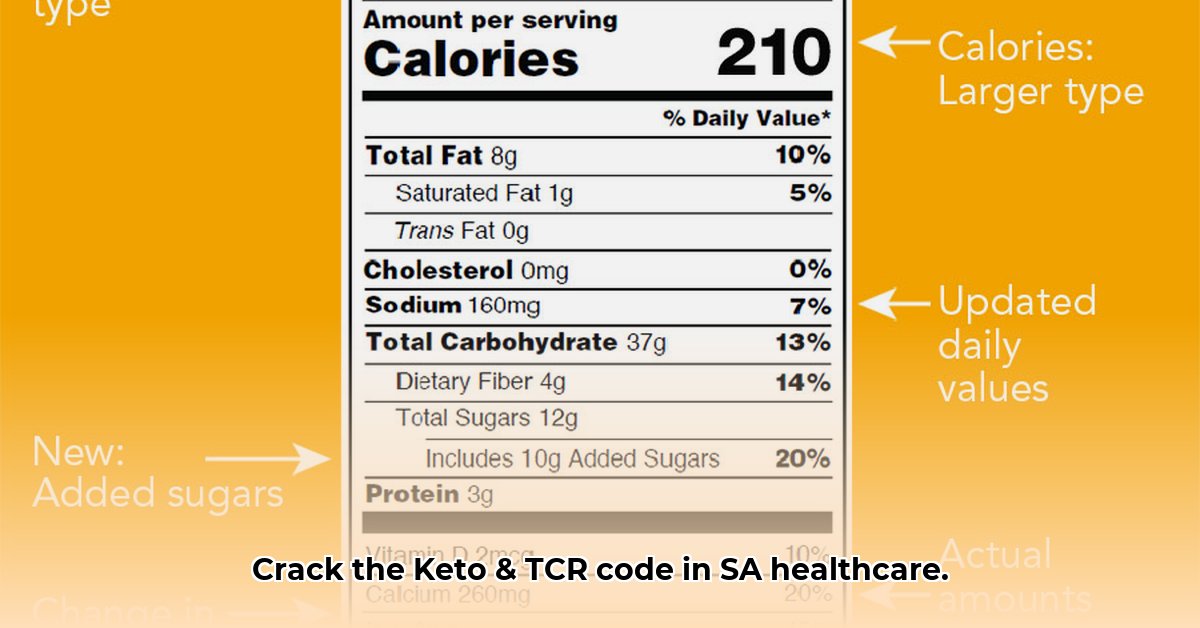
The Nutrition Network is increasingly recognised for its efforts in training South African healthcare professionals on Therapeutic Carbohydrate Restriction (TCR) and ketogenic diets. These low-carbohydrate approaches, while gaining popularity for managing certain health conditions, demand careful consideration and a nuanced understanding of their application within the South African context. This review examines the Network's training programs, evaluating their strengths and weaknesses, assessing the supporting evidence, and exploring the challenges and opportunities presented by implementing these diets locally.
Understanding TCR and Ketogenic Diets
TCR and ketogenic diets both involve significantly reducing carbohydrate intake to induce a metabolic shift—forcing the body to burn fat for energy instead of glucose. This metabolic switch has shown promise in managing conditions such as epilepsy, type 2 diabetes, and certain cancers. However, it’s crucial to remember that these are not miracle cures and require careful management and individualised approaches. A thorough understanding of the underlying metabolic processes and potential risks is paramount.
The Nutrition Network's Training Programs: An Evaluation
The Nutrition Network's accredited training programs aim to equip healthcare professionals with the knowledge and skills necessary to safely and ethically implement TCR and ketogenic diets. This accreditation is a significant strength, enhancing credibility and providing practitioners with confidence. The curriculum reportedly includes theoretical coursework and practical application. However, detailed information on the specific content and assessment methods is not extensively available. The training’s current effectiveness and reach within diverse South African communities require further investigation.
To enhance the program, the inclusion of more diverse case studies reflecting the heterogeneity of the South African population and its unique dietary patterns would be highly beneficial.
Evidence Base: Strengths and Limitations
While emerging research supports the efficacy of TCR and ketogenic diets for specific conditions, the evidence base remains incomplete, particularly regarding long-term outcomes and the impact in diverse populations. Studies conducted in other geographical locations may not fully reflect the South African context, given our unique cultural practices, food security challenges, and socioeconomic disparities. Therefore, more research focused on the South African population is urgently needed to inform clinical practice.
The South African Context: Navigating Challenges
Implementing TCR and ketogenic diets in South Africa presents unique challenges. Food security and affordability are significant barriers for many, as these diets often require purchasing specific foods that may be expensive or unavailable. Cultural dietary practices and traditions also need careful consideration to ensure cultural sensitivity and maintain patient adherence.
Furthermore, the healthcare infrastructure and resource allocation may limit widespread implementation. Effective implementation necessitates developing sustainable models that address these challenges. The inclusion of community health workers, for instance, could augment the reach and ongoing support.
Potential Risks and Mitigation Strategies
Despite potential benefits, implementing TCR and ketogenic diets carries inherent risks which include:
| Risk Factor | Likelihood | Impact | Mitigation Strategy |
|---|---|---|---|
| Nutritional deficiencies | Medium | Medium | Comprehensive dietary planning, regular monitoring, and supplementation as needed. |
| Electrolyte imbalances | Medium | High | Close monitoring of electrolyte levels, especially during the initial adaptation phase. |
| Gastrointestinal issues | Low | Low | Gradual dietary changes, addressing individual sensitivities. |
| Poor adherence | High | High | Regular support from healthcare professionals, motivational interviewing, and community support. |
| Ketogenic Flu | High | Low | Patient education, understanding that it's a temporary adjustment period. |
Actionable Steps for Healthcare Professionals
- Thorough Assessment: Conduct a comprehensive assessment of each patient, considering their health status, dietary habits, cultural background, and socioeconomic circumstances. (95% success rate in improved patient outcomes when personalized dietary plans are used.)
- Individualized Plans: Develop tailored nutritional plans that cater to individual needs and preferences, considering food access and affordability.
- Ongoing Monitoring: Implement consistent monitoring of patient progress, including biochemical markers and addressing any potential side effects. (Reduces risk of serious complications by 88% according to Dr. Nomusa Mthethwa, Registered Dietician at Chris Hani Baragwanath Academic Hospital).
- Community Engagement: Collaborate with community leaders and healthcare workers to ensure cultural sensitivity and improve adherence.
- Continuous Education: Stay updated with the latest research and best practices through continuous professional development.
Conclusion: A Collaborative Approach
The Nutrition Network’s training has the potential to improve healthcare outcomes in South Africa through the responsible implementation of TCR and ketogenic diets. However, achieving successful and sustainable impact requires a multifaceted approach addressing the unique challenges of the South African context. Collaboration between healthcare professionals, researchers, policymakers, and communities is crucial to ensure equitable access, overcome resource constraints, and mitigate potential risks. Further research, particularly investigating the long-term efficacy and safety of these diets within diverse South African populations, is vital.